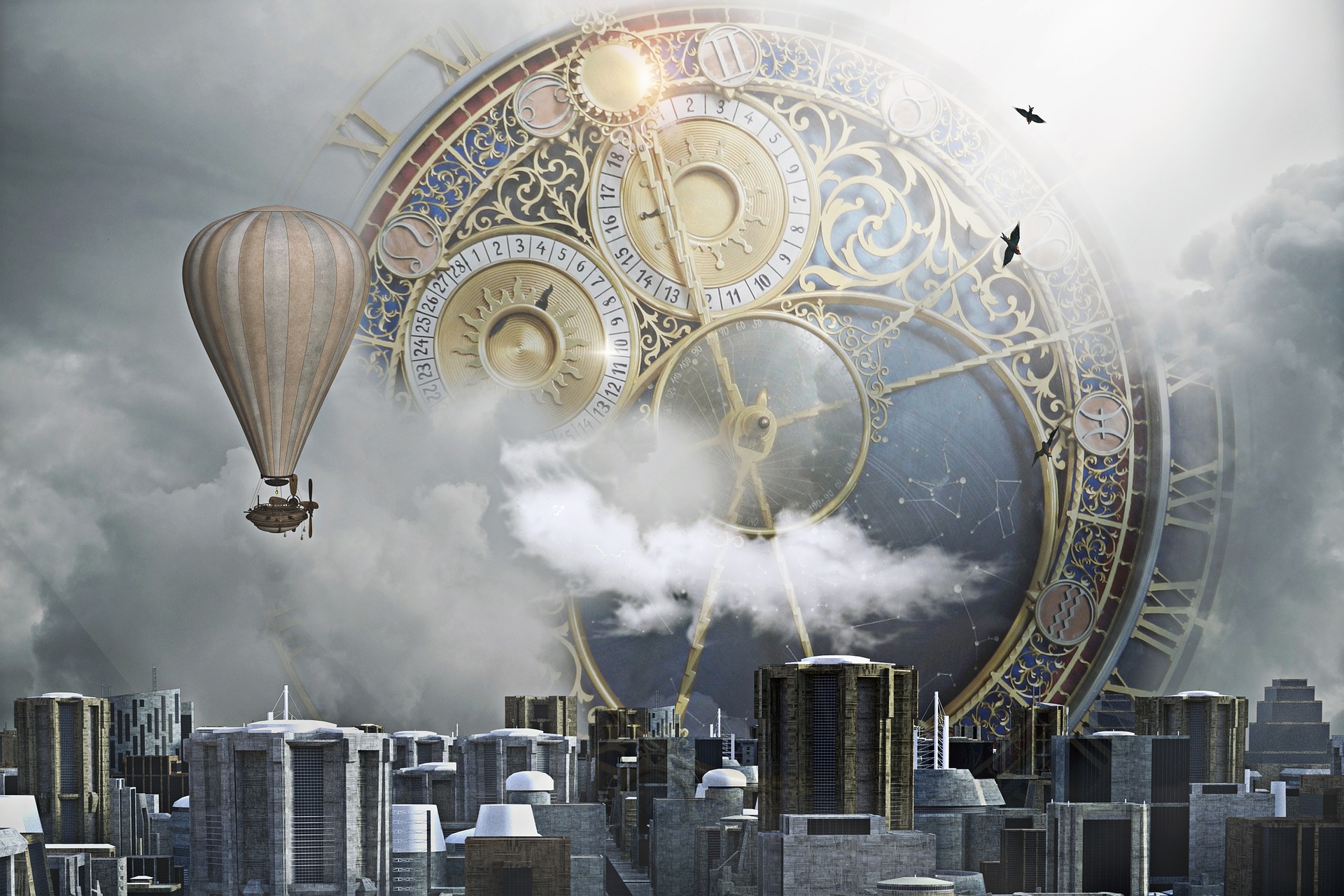 Submitted by Techno on
Submitted by Techno on

One of the weirder aspects of quantum mechanics could be explained by an equally weird idea – that causation can run backwards in time as well as forwards.
What Einstein called "spooky" action at a distance could theoretically be evidence of retrocausality, which is the particle equivalent of you getting a stomach ache today thanks to tomorrow's bad lunch.

Christoph Hetzmannseder/Keystone-France/REB Images/Getty
A pair of physicists from the US and Canada took a closer look at some basic assumptions in quantum theory and decided unless we discovered time necessarily ran one way, measurements made to a particle could echo back in time as well as forward.
We all know quantum mechanics is weird. And part of that weirdness comes down to the fact that at a fundamental level, particles don't act like solid billiard balls rolling down a table, but rather like a blurry cloud of possibilities shifting around the room.
This blurry cloud comes into sharp focus when we try to measure particles, meaning we can only ever see a white ball hitting a black one into the corner pocket, and never countless white balls hitting black balls into every pocket.
There is an argument among physicists over whether that cloud of maybes represents something real, or if it's just a convenient representation.
A physicist by the name of Huw Price claimed back in 2012 that if the strange probabilities behind quantum states reflect something real, and if nothing restricts time to one direction, the black ball in that cloud of maybes could theoretically roll out of the pocket and knock the white ball.
"Critics object that there is complete time-symmetry in classical physics, and yet no apparent retrocausality. Why should the quantum world be any different?" Price wrote, paraphrasing the thoughts of most physicists.
Matthew S. Leifer from Chapman University in California and Matthew F. Pusey from the Perimeter Institute for Theoretical Physics in Ontario also wondered if the quantum world might be different when it comes to time.
The pair exchanged some of Price's assumptions and applied their new model to something called Bell's theorem, which is a big deal in this whole spooky action at a distance business.
John Stewart Bell said that the weird things that happen in quantum mechanics can't ever be explained by actions taking place nearby. It's as if nothing is causing the multitude of billiard balls to take such varied paths. At a fundamental level, the Universe is random.
But what about actions taking place somewhere else... or somewhen else? Can something far away influence that cloud without touching it, in a way that Einstein called "spooky"?
If two particles are connected in space at some point, measuring a property of one of them instantly sets the value for the other, no matter where in the Universe it has moved to.
"Critics object that there is complete time-symmetry in classical physics, and yet no apparent retrocausality. Why should the quantum world be any different?" Price wrote, paraphrasing the thoughts of most physicists.
Matthew S. Leifer from Chapman University in California and Matthew F. Pusey from the Perimeter Institute for Theoretical Physics in Ontario also wondered if the quantum world might be different when it comes to time.
The pair exchanged some of Price's assumptions and applied their new model to something called Bell's theorem, which is a big deal in this whole spooky action at a distance business.
John Stewart Bell said that the weird things that happen in quantum mechanics can't ever be explained by actions taking place nearby. It's as if nothing is causing the multitude of billiard balls to take such varied paths. At a fundamental level, the Universe is random.
But what about actions taking place somewhere else... or somewhen else? Can something far away influence that cloud without touching it, in a way that Einstein called "spooky"?
If two particles are connected in space at some point, measuring a property of one of them instantly sets the value for the other, no matter where in the Universe it has moved to.
Now keep in mind, this kind of backwards time travel isn't the sort that would allow you to go back in time and consciously change the present, sorry to say. Future scientists also won't be able to encode lottery numbers into entangled electrons and mail them back to their younger selves.
In any case, the idea of anything trickling backwards in time might not be an appealing one, but let's face it, when it comes to phenomena like entanglement, nearly any explanation is going to sound downright insane.
Mike McRae
- 569 reads